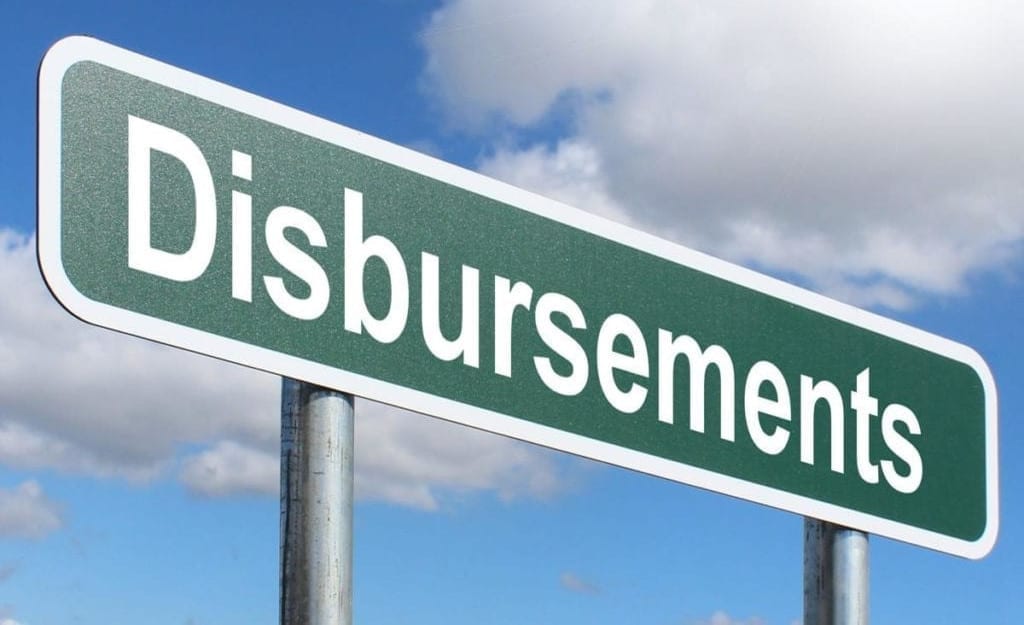Many solicitors will refer to any charges that go over and above the basic fee for their services to the client as a ‘disbursement’. Disbursements may refer to expenses paid out on behalf of the client to a third party, for example.
However, the term is loosely used for a broad range of charges that may not actually qualify as ‘disbursements’ when it comes to VAT treatment.
We have put this information together to assist Solicitors in determining the correct VAT treatment of costs recharged to clients.
To understand how VAT applies, a distinction needs to be made between:
- Costs incurred by solicitors in the course of delivering their own services to clients – These recharged costs are subject to standard rated VAT. Any input VAT incurred by solicitors on the initial supply can be recovered (subject to the usual input VAT recovery rules); and
- Costs incurred by solicitors where they’re acting as an agent of the client – These costs qualify as disbursements for VAT purposes and VAT does not need to be added when the cost is recharged to the client. VAT incurred on the initial payment of the disbursements can also not be claimed back.
As the VAT treatments are very different, it is important to determine whether third party costs qualify as a disbursement or not.
This issue has been further complicated by the Brabners Case (see below). We should emphasise that this is not a straightforward area of law, as demonstrated by the Brabners case below, and therefore guidance may not provide a definitive answer. It’s best to exercise your own judgement.
Overall, HMRC advise that the following charges are usually eligible to be treated as disbursements by solicitors on behalf of their clients:
- Statutory charges such as court fees, estate duty, incorporation fees, land charges, and land registry fees, probate fees and stamp duty.
- Charges for the professional services of a third party such as estate agent fees, notaries, surveyors, or witnesses, and charges for police and medical reports.
The key is whether the service is being provided to the client and the solicitor has initially paid on behalf of the client for ease, or whether the supply is being made to the solicitor in order for the solicitor to be able to provide their own services to the client.
HMRC guidance state that to treat a payment as a disbursement, all of the following must apply
- You paid the supplier on your customer’s behalf and acted as the agent of your customer;
- Your customer received, used or had the benefit of the goods or services you paid on their behalf;
- It was your customer’s responsibility to pay for the goods or services, not yours;
- You had permission from your customer to make the payment;
- Your customer knew that the goods or services were from another supplier, not from you;
- You show the costs separately on your invoice;
- You pass on the exact amount of each cost to your customer when you invoice them;
- The goods and services you paid for are in addition to the cost of your own services.
The Law Society has released guidance on disbursements, which state that as minimum it would be necessary, but not necessarily sufficient, to demonstrate the following conditions:
a) Your client should have either requested that you obtain the service on their behalf or authorised you to do so.
b) The supplier should be aware that the service is being provided to a third party, i.e. your client
c) In the case of a report or a search result, the final report should be sent to your client, either by you or by the supplier.
d) The amount you charge to your client should be exactly the same as the amount the supplier charges to you.
e) The expense should be separately itemised on the invoice you send to your client.
Property search fees can be treated as a disbursement if passed onto the client without comment or analysis
In the case of Brabners Vs HMRC, the issue in question was whether or not electronic searches carried out in conveyancing should be classed as a disbursement.
The tribunal found that the amount paid by the client in search fees was considered part of the overall fee for the service provided by the firm, and therefore, the fees for those searches could not be treated as disbursements for VAT purposes.
Discussions took place between HMRC and The Law Society regarding the correct VAT treatment of property search fees following the Brabners case. This led to a withdrawal of the ‘postal concession’, effective from 1 December 2020.
Prior to 1 December 2020, there was a HMRC ‘postal concession’, which allowed solicitors not to charge VAT on fees for property searches conducted by post, despite not meeting all of the disbursement conditions. However, following the Brabners case as discussed above, HMRC stated that this concession was inconsistent with the treatment of electronic property searches and, as such, withdrew the concession.
Summary of HMRC’s recommended VAT treatment:
- Property (electronic or postal) search fee passed onto the client without comment or analysis:
- Treat as a disbursement.
- Do not charge VAT.
- Property (electronic or postal) search fee passed onto the client but the firm uses the search to provide advice/produce a report for the client:
- Not a disbursement.
- Charge standard rated VAT at 20%.
Law Society advice
As advised by the Law Society, for there to be any possibility that such search fees may be treated as a disbursement, you should ensure that the conditions (as detailed above) are met and therefore you should:
- Give or offer to provide the original search report to your client. If you must give this to the mortgage company, a copy should be given to your client and you should explain to them that the original search report has been given to the mortgage company.
- Tell the supplier the identity of your client. You can do this by including in the standard search forms sent to the supplier some identifying feature, such as a client and/or file reference number.
HMRC advise that this guidance also relates to personal searches. HMRC state that the fee for personal searches is charged for the supply of access to the official record, and it is the solicitor rather than the client who receives that service. The solicitor uses this information to advise the client and the recovery of the outlay is part of the overall value of the solicitor’s service to the client. Therefore, VAT should be re-charged at the standard rate.
Land Registry Fees are treated in the same way as property searches
Where you have charged fees for carrying out searches and obtaining copy documents, the treatment is the same as with property searched (detailed above).
Where searches are carried out, or copy documents obtained by the firm, HMRC may argue that the fact the firm has made use of the search results or copy documents to provide advice or give certifications, means that the supply of the search results/copy documents is a supply to the firm. If this is the case, that cost must be treated as part of the firm’s legal supply and subject to standard rated VAT (i.e. not treated as a disbursement).
Fees for registration applications
It is The Law Society’s view that land registry fees for registration application should ordinarily be treated as disbursements.
Summary of VAT treatment:
- Treat as a disbursement.
- Do not charge VAT.
Where a payment is made to the bank via the solicitors own business, it cannot be treated as a disbursement
Where a payment is made to the bank via the solicitors’ own business or client account for the transfer of funds (telegraphic transfer fees or CHAPS), the solicitor cannot treat the bank’s fee as a disbursement for VAT purposes.
The service for which the charge is made is supplied by the bank to the solicitor, not the client. Although the bank’s supply may be exempt from VAT, the fee when re-charged, even though at cost, is part of the value of the solicitor’s own supply of legal services to the client, and VAT is due on the full amount.
Summary of VAT treatment:
- Not a disbursement.
- Charge standard rated VAT at 20%.
There is no specific rule or mention in the VAT guidance on the treatment of advertising
As such, we would recommend following the general VAT disbursement guidance i.e. if the advertisement forms part of the overall supply provided by the solicitor to the client then charge VAT. If the solicitor is acting as an agent and paying the advertising company on behalf of the client then it can be treated as a disbursement for VAT purposes
Travel and accommodation costs cannot be treated as disbursement for VAT purposes
Travel, accommodation and telephone charges incurred by a solicitor in the course of services to clients, and recovered from clients at cost, cannot be treated as a disbursement for VAT purposes. Such supplies are made to the solicitor and therefore form part of the onward supply of legal services to the client.
Summary of VAT treatment:
- Not a disbursement.
- Charge standard rated VAT at 20%.
We recommend any unidentified disbursements be charged at the standard rate of VAT.
Ideally, all amounts recharged to clients should be identified and the correct VAT treatment applied. However, we understand that this may not always be the case. As such, due to the strict conditions having to be met to pass as a disbursement for VAT purposes, we recommend any unidentified disbursements be charged at the standard rate of VAT.
Other points to note
Client Bank accounts
HMRC specifically states that the fact that a solicitor withdraws funds from a separate client account to make payments has no bearing on whether the re-charge qualifies as a disbursement for VAT purposes or not. If those funds are withdrawn to meet costs incurred by the solicitor for supplies made to him/her, the recharge cannot be treated as a disbursement for VAT purposes, even if it is made at cost.
Impact on client
It should be noted that whether or not an expense can be treated as a disbursement for VAT purposes will only impact your client if no VAT is charged on the initial supply to your firm.
If the expense is subject to VAT and cannot be treated as a disbursement, the VAT element of the expense should be treated as input VAT and recovered by the firm (subject to the usual input VAT recovery rules). The net amount charged by the third party supplier to the firm should be treated as the expenditure (not as a disbursement), and added to the firm’s invoice on which standard rated VAT will be charged. Thus, the amount your client pays in total for the expense will be the same as charged to your firm.
If the expense is not subject to VAT and cannot be treated as a disbursement, you will have to charge your client the full cost incurred by the firm, plus VAT at the standard rate. Thus, the client will be paying more for the expense than the amount incurred by your firm.
Consequences
Firms should be mindful that if HMRC were to successfully challenge a firm on the treatment of a disbursement then it may have to bear the additional VAT, interest and any penalties found to be due out of its own resources.
HMRC has announced more guidance to come
As part of a wider exercise on the VAT treatment of disbursements, HMRC has also announced that it intends to produce more detailed guidance on this in due course. Watch this space!






